#occidentalism
Text
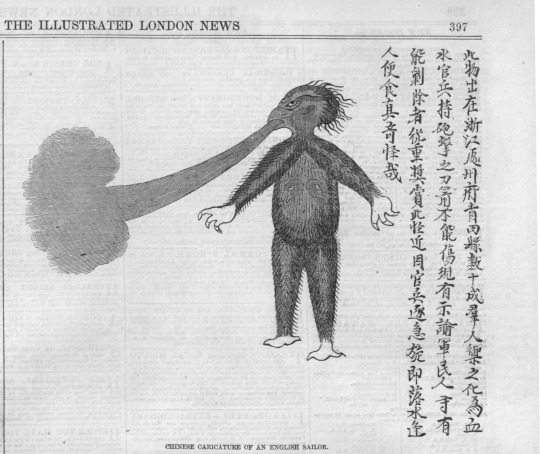
此物出在浙江處州府青田縣數十成羣人禦之化為血水兵官持砲擊之刀箭不能傷現有示諭軍民人守有能剿除者從重獎賞此怪近因官兵逐急旋即落水逢人便食真奇怪哉
"Chinese Caricature of an English Sailor (in war of 1839)"
The Illustrated London News, April 25, 1857.
98 notes
·
View notes
Text
Is Cyberpunk 2077 Orientalist?
No.
But that would be a poor counterpoint to the internet essays and YouTube videos that accused Cyberpunk 20777 being orientalist.
I obviously love Cyberpunk 2077 a lot. I enjoyed "cyberpunk as a genre" mostly through anime and manga than Hollywood or western literature.
But I also spent a significant amount of my life studying the history of the British Imperialism of Southeast Asia in the 19th century and the Japanese Occupation of Asia Pacific in the 20th century because like most of the people within Asia Pacific, we all struggle with intergenerational family trauma. I wanted to understand why.
Therefore, I felt compelled to address a couple of troublesome shallow criticism specifically against this game and I want to call out a particular dangerous subtext within some of the articles that I've read.
This post is very lengthy.
What is Orientalism?
Orientalism was a body of fact, opinion and prejudice accumulated by western academia. It argued that colonialism was a system of political rule and an all-round worldview that believed the west was superior to the east. It involved the power to disseminate knowledge to collaborate with the western power to justify their domination of the east.
This term was coined by Edward Said who was a Palestinian-American professor of literature and the founder of the academic field of postcolonial studies. His criticism was against the norms of the western academia and against corroborating with systems of power and giving the justification for centuries of colonization and subjugation particularly against the people in the Near East particularly the Islamic world.
What is Japanese Imperialism?
During the Sengoku period when Japan was just an island with a lot of warring Samurai clans. Through political and military might, Toyotomi Hideyoshi united Japan in 1590. In 1592, he launched invasions against the Joseon dynasty and it's proxy, the Ming dynasty. They failed spectacularly but this left an indelible mark against the collective psyche of Japanese people for several centuries.
Japanese imperial ambitions resurged around the end of Tokugawa Shogunate and the start of Meiji Restoration. Factored in by the span of the relatively peaceful Edo period under various shoguns, the push to end Japan's isolationist policies (Sakoku) from within and outside (European powers and mostly, USA), the start of Bakumatsu and the dreams of constitutional absolute monarchy. All of contributed to the complete disintegration of Japanese feudal caste-based society fueled by the discontent of peasant class wanting social mobility, the disaffected samurai class and the prosperity of the merchant class during the industrialization period which lead to Zaibatsu emergence; conglomerates of families controlling certain aspects of Japanese economy.
With the desire for international prestige, pressured to sustain their newly oiled capitalistic machine with the expansion to overseas foreign markets while maintaining dominance within domestic politics; Japan realized that they lack the necessarily resources within it's own borders. It began to look toward it's neighbour again; Joseon (Korea).
Thus, the start of Sino-Japanese War (1894) which lead to Russo-Japanese War (1904), then the invasion of Manchuria (1931-1932), the Second Sino-Japanese War (1937) and the expansion throughout the Asia Pacific during World War II (1941-1945).
What is Self-Orientalism?
This was a willful conscious and/or unconscious attempt of using stereotypical portrayals by accepting and performing them to suppress own authentic representations. This also happened to regions on the outset of Eurocentricsm, (cultures and people who have been colonised, subordinated or simply influenced), becoming more globalized and becoming available to western projections about what is or should be other. Thus many learned to accept and appropriate orientalism as a strategic method to gain benefits, recognition and position themselves especially within the Western-dominated global economy, system and order. (i.e: entertainment industry, tourism industry, etc)
What is Occidentalism?
Occidentalism was an inversion of Orientalism. Defined as the distorted and stereotypical views against the West by the East. But even with the current political climate, the true use and influence of Occidentalism have limited applications.
The more robust Orientalism operated within global asymmetrical power relations resulting in the hierarchic othering process by the western hegemony. We don’t live in a world where the complete opposite happened to have the true form of Occidentalism.
Currently, the term was mainly used to describe the anti-European or anti-American ideology by Islamist fundamentalists or Chinese and Japanese nationalists (including North Korean nationalists and Russian Imperialists).
What is Japanese Occidentalism?
As a former-imperialist and current-capitalist power, Japan occupied a unique position where it was currently seen almost as an equal to the modern western world. Occidentalism manifested through their WW2 war propaganda against the western allied forces.
But Japan was briefly occupied by the United States of America from 1945 to 1952. That forced the Japanese people and the nation to reconstruct itself around it's own national tragedies (the atomic bombing of Hiroshima and Nagasaki) and to reestablish itself as a formidable nation that was desperate to salvage whatever remained of it's own pride and identity.
Sometimes distorted portrayals of the west manifested itself in popular culture or criticism against the west’s intervention into current Japanese politics but never quite carry the same impact especially to the modern Japanese people.
Or except for a few.
What is Japanese Historical Revisionism?
Much like Holocaust deniers in the US, there was an ongoing revival of ultranationalism project to revise and sanitize the history of Imperial Japan in the 20th century. It was done under the impression that these factual atrocities that happened not so long ago to our grandparents’ generations was just a product of historical distortion and anti-Japanese sentiments by the West. Under this line of thoughts; any negative historical portrayals about the Japanese people was simply assumed as Japanophobia.
Not surprisingly. This is still an active and thorny political issue between many nations subjugated by Imperial Japan particularly between South Korea and China. From the enshrinement of war criminals and honoring the dead soldiers in the Yasukuni Shrine to the lack of reparations and official apology to the survivors of wartime sexual slavery to the attempts at rewriting history books that minimize the scale and significance of Japanese war crimes and the complicity of United States' government and it's muddled foreign policies in this region.
***
Emperor Akihito of Japan; during the National Memorial Service for War Dead in 2015 :
“Reflecting on our past and bearing in mind the feelings of deep remorse over the last war, I earnestly hope that the ravages of war will never be repeated. Together with all of our people, I now pay my heartfelt tribute to all those who lost their lives in the war, both on the battlefields and elsewhere, and pray for world peace and for the continuing development of our country.”
Former Crown Prince and the current Emperor Naruhito of Japan in 2015 :
“[I] did not experience the war … it is important today, when memories of the war are fading, to look back humbly on the past and correctly pass on the tragic experiences and history Japan pursued from the generation which experienced the war to those without direct knowledge.”
***
Why does all of these matter when discussing or criticizing portrayal of Japanese people and culture within Cyberpunk 2077?
Because having the larger picture mattered when discussing real world history and politics into Mike Pondsmith's Cyberpunk.
Orientalism placed the particular importance of imbalance of power dynamics between the East and the West. Particularly, how the distorted representation and process of dehumanization of people and their culture would justify the Western hegemonic superiority against its lesser Eastern counterpart.
Pondsmith's Cyberpunk is an alternate timeline where technological advances diverged into a dystopian dark future where megacorporations ruled humanity. This is also a world where the collapse of superpowers of all major nations on the planet.
Unlike the story of our world where Japanese Zaibatsu were mostly dissolved during Allied Occupation and Reconstruction of Japan (1942-1952), Arasaka Zaibatsu survived through the modern era and into the 21st century; mostly led by a former Japanese Imperial soldier and heir to Arasaka family; Saburo Arasaka.
They were Imperial Japanese relics from 20th century that could only survive through fictional portrayal. They were not meant to be the representative of Japanese people or culture or society. In fact, the larger part of the nefarious elements within the storytelling was the purposeful appropriation of Japan and it's people by the villain himself.
This felt very purposeful and added a lot of depth into the character because this was what I imagined when I read and listened and empathized with the survivors' account of having to work for the Japanese Imperialists during the occupation. How they need to survive. It was all meant to inspire this feeling of inward hatred for working with the enemy who have very little respect or empathy for you as a human being.
Arasaka used self-orientalism to rebrand themselves with the Japanese identity, values and mythology to further it's own corporate ambitions. It have it's own self-styled royal family, appropriated the legends of Izanami and Izanagi, created their own digital underworld and used Japanese ultranationalist elements to justify it's rule against the world but primarily the subjugation of Night City and it’s people.
Personally, I became very impressed with the way Cyberpunk 2077 immediately present all of these elements within the introduction of Corpo V storyline. From the talk with Jackie, the way V's colleagues reacted to them with either disgust or suspicion. I immediately felt sickened when I watched the elevator's wall documentary glorifying this imperial Japanese soldier who happened to be the chairman of the company itself.
And then I began to recognize a lot of elements that I associated with 20th century Japan. Karayuki-san. Comfort Women. Comfort Stations. The treatment of women within Arasaka's society. The weaponism of Bushido. There was also this hint of Japanese occidentalism against the West. Then everything made sense for me. All of this was the world created by Saburo Arasaka. A world where his Japan never lose the war against the US. A world where he was the emperor and have the power to set the destiny of his own people and his enemies.
Saburo reimagined his own Japanese identity, his national history that placed his ideals of Japan being more superior in a screwed up selfish way and everyone suffered for it.
It felt like a living nightmare because it was intended to be.
The exploration of an alternate world where Japan seemingly won WWII was nothing new. I read Phillip K Dick's The Man in the High Castle as a teenager and followed the 2015′s Amazon television adaptation. Back then I realized not everyone was exposed to this aspect of Imperial Japanese history either through history classes or fictional portrayals. There was also a tendency to magnify American involvement and the push for sympathetic portrayals of Imperial Japanese Army and it’s government while giving little attention given to the lived realities of people brutally victimized by them (which included prisoners of wars from UK, Australia and other countries). Compounded by the need to be kinder to this region of history meant there was less interest in media unlike the constant popularity of the WW2′s Axis counterparts.
But Cyberpunk TTRPG and Cyberpunk 2077 did more than just reimagining an alternate history. By using cyberpunk's convention, you're forced to be within the perspective of the oppressed rather than the oppressor. This act of humanizing the narrative of the little people struggling against an oppressive system was important because it was easier to desensitized against them. To pretend ignorance about the unrepresented because there was enough suffering in the world already.
For this alone, Cyberpunk 2077 is one of the most important post-colonial work that examined WW2 Imperial Japan as a cautionary tale.
TL;DR : But really, is Cyberpunk 2077 orientalist?
No.
I don't think CD Projekt RED and R. Talsorian Games willfully does that...? I haven't yet read the official statements, but I felt CDPR are all well-aware of the content of their game and familiar with the concepts of Orientalism, Self-Orientalism and Occidentalism. Which was then applied to their works; visual narrative, story and characters etc.
It can be debatable whether each of those post-colonial academical concepts were clarified enough within the Pondsmith’s Cyberpunk but these terms by themselves are subjective. Whether they would attract more academic interest into this game, be my guest.
Was it cultural appropriation...? Yes. Because that was the whole point of the settings, the story and the fictionalization process.
The term Orientalism itself was tied to the western power dynamics and perpetuating and disseminating a false but dominant worldview. In Cyberpunk, the west have been decimated and most nations have all collectively been disempowered including USA. But taking offense about negative portrayals of people with the context of historical elements or a setting portraying an aesthetic based on certain culture; that was never what criticism of Orientalism being about.
For internet essayists, be aware that these academic terms weren't meant to be derogatory either to the creator or against the the consumer. When criticizing what you felt as “negative portrayals/Japanophobia”; understand that not even Japanese people are incapable of orientalist cyberpunk works; Psycho-Pass: The Movie was horrible at portraying Southeast Asians and it won Best Picture and Screenplay in 2015. Also, keep in mind about historical revisionism that seek to minimize anything about Imperial Japan in the 20th century.
Also, CDPR did the localization in South Korea and Mainland China.
More references :
While I can only speak for myself as a Malaysian with close families who survived the Japanese Occupation but shouldn't something like this blew up even worst? Like in the scale of international incident? Wouldn’t there be more articles especially by born and bred Asians like me who would readily speak out especially with all the sensitive nature and topics?
Or maybe, Mike Pondsmith’s Cyberpunk have done something right after all?
1. Edward S Said’s Orientalism
2. Edward S. Said’s Culture and Imperialism
3. Occidentalism in Japan
4. Towards Critical Occidentalism Studies: Re-inventing the 'West' and 'Japan' in Mangaesque Popular Cultures
5. Forgiving The Culprits: Japanese Historical Revisionism in a Post-Cold War Context
6. The Comfort Women: Japan's Brutal Regime of Enforced Prostitution in the Second World War
7. The Rise and Fall of the Zaibatsu: Japan's Industrial and Economic Modernization
8. The Meiji Secret: The Emergence of Zaibatsu Dominance in Japan
#Cyberpunk 2077#Cyberpunk essay#Cyberpunk#Japanese history#Japanese Revisionism#video game#Orientalism#Occidentalism#Self-Orientalism
51 notes
·
View notes
Text
Critique of „Occidentalism" A Dialogue with Li Xinmo
Juan Xu: The term “Orientalism” has been widely used since Said defined it. This concept signifies the Western misinterpretation of the East. I read an article titled “Post-colonial Criticism Is Still Effective” by Wang Nanming on http://www.artinter.net. I’ve been wondering why “Occidentalism” is rarely discussed among artists in China. Have you heard of “Occidentalism”? If so, how do you…

View On WordPress
0 notes
Photo

“ Esta figurilla procede de Colima y fue elaborada en torno al 300 0 600 d. C. Muestra un especialista ritual vestido como cocodrilo el casco puede ser removido en su totalidad. “
Figure from Colima around 300-600 AD. It shows a person dressed with a crocodile helmet. The helmet is removeable.
#colima#indigena#indigenous#prehispanic#prehispanico#mexico#occidente#michoacan#jalisco#cocodrilo#ritual#casco
638 notes
·
View notes
Text
The answer will always be "yes"
A reminder that I have this bibliography of sources on West Mexico
75 notes
·
View notes
Text

Son quelle situazioni che non sai se stare con Heidegger o con al-Qurashi...:-)
79 notes
·
View notes
Text




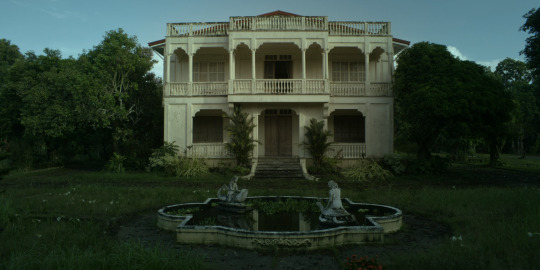
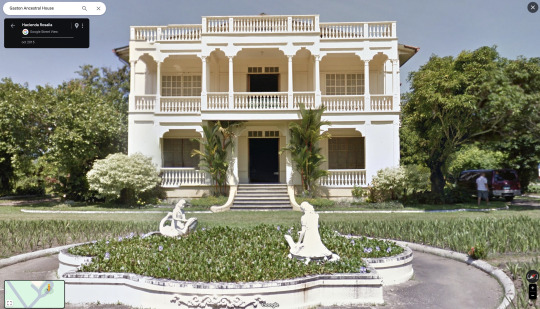
In My Mother's Skin
Kenneth Dagatan. 2023
House
Hacienda Santa Rosalia, Western Nautical Hwy, Manapla, Negros Occidental, Philippines
See in map
See in imdb
#kenneth dagatan#in my mother's skin#manapla#negros occidental#philippines#western visayas#hacienda santa rosalia#beauty gonzalez#jasmine curtis-smith#witch#fairy#movie#cinema#film#location#google maps#street view#2023
24 notes
·
View notes
Text


old sketches of hk (top) and guangdong (bottom) because apparently not even my chineseness is secure enough to not be othered from me when i don't follow how outsiders think we should act )-)o
#hws hong kong#aph hong kong#hws guangdong#hetalia#hws#aph#hws chinese provinces#orz its a given that people constantly take my birthright as nikkeijin away from me but my chineseness too? damn#what im saying here is that every time ive acted out of line of what people think a japanese-descent or chinese person should act#i get reduced and labeled in a way that removes those core aspects of my identity -- typically by overemphasizing my chineseness as other#or recently -- as just vaguely east asian#yowch#whether or not op knew i was chinese i was still stripped of my chinese identity in order for op to smear my art as sinophobic#it doesn't matter if they didn't know. they had to make the assumption i wasn't chinese#“because what chinese person would do such a thing?” says the orientalist#orientalism only makes the orientalist's orient true to the audience#not to know the actual orient -- which doesn't exist outside of the occidental imaginary
97 notes
·
View notes
Text

«La gente capaz de amar, en el sistema actual, constituye por fuerza la excepción; el amor es inevitablemente un fenómeno marginal en la sociedad occidental contemporánea. No tanto porque las múltiples ocupaciones no permiten una actitud amorosa, sino porque el espíritu de una sociedad dedicada a la producción y ávida de artículos es tal que sólo el no conformista puede defenderse de ella con éxito. Los que se preocupan seriamente por el amor como única respuesta racional al problema de la existencia humana deben, entonces, llegar a la conclusión de que para que el amor se convierta en un fenómeno social y no en una excepción individualista y marginal, nuestra estructura social necesita cambios importantes y radicales».
Erich Fromm: El arte de amar. Ediciones Paidós, págs. 137-138. Buenos Aires, 1974.
TGO
@bocadosdefilosofia
@dies-irae-1
#erich fromm#fromm#el arte de amar#amor#actitud amorosa#sociedad occidental#sociedad contemporánea#existencia#existencia humana#estructura social#cambio#reforma#transformación#filosofía humanista#psicoanálisis#freudomarxismo humanista#teo gómez otero
20 notes
·
View notes
Text
Fuera de joda que nada pero nada la baja más que escuchar a alguien haciendo chistes de "saquenmé de Latinoamérica" no importa lo atractiva que sea la persona en otros aspectos o cuánta onda podamos tener para mí es un no instantáneo
#SI ERES ARTISTA Y LOS INDIOS NO TE ENTIENDEN SI TU VANGUARDIA AQUÍ NO SE VENDE SI QUIERES SER OCCIDENTAL DE SEGUNDA MANO#POR QUEEEEE NO TE VASSSSSS#cosas mias#pasa un poco por el patriotismo/zurdaje pero además es como una... cosa fea#como escuchar que alguien habla mal de la madre#una falta de cariño por lo que te rodea
27 notes
·
View notes
Text

THE WESTERN WALL
37 notes
·
View notes
Text
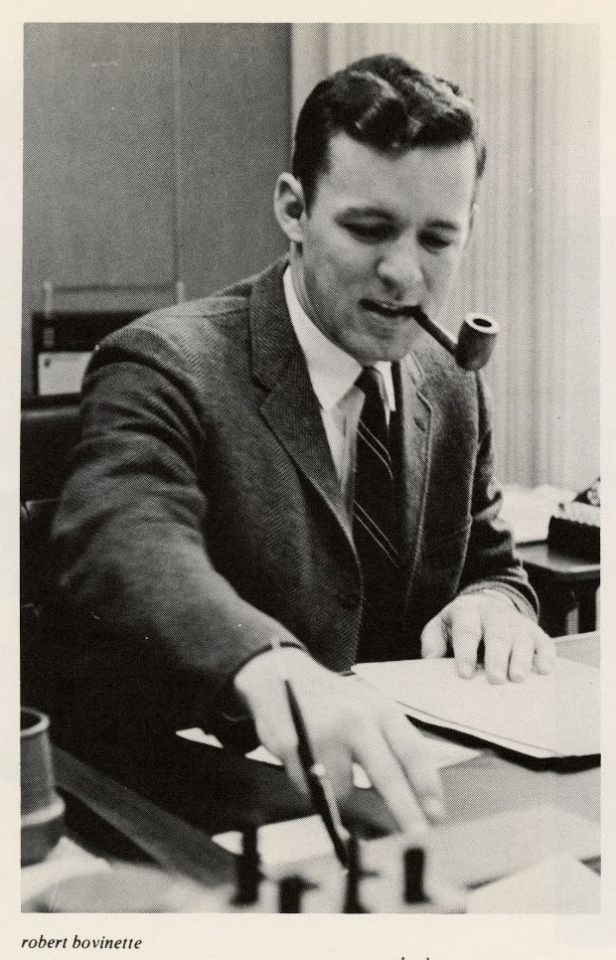
Dean Robert Bovinette, Occidental College, 1969.
34 notes
·
View notes
Text
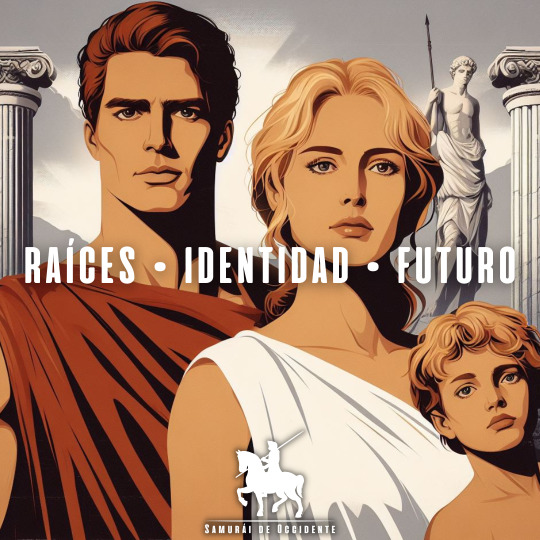

𝗥𝗔Í𝗖𝗘𝗦 • 𝗜𝗗𝗘𝗡𝗧𝗜𝗗𝗔𝗗 • 𝗙𝗨𝗧𝗨𝗥𝗢
🧔🏻👶🏼👩🏼
► Samurái de Occidente:
instagram
#europe#occidente#samurai#aesthetic#europa#masculine#españa#art#identity#arte#artificial intelligence#ai#ai art#ai generated#ai image#ai artwork#ai girl#aiartcommunity#ai art gallery#ai artist#ai art generator#greece#classic#blond girl#cute blond#brunete#Instagram
22 notes
·
View notes
Text

Itsasotik ibaiera...
ERREKATIK ITSASORA...
#from the river to the sea#stand with palestine#genocide#decolonization#palestin#eternal resistance#horra#in 1956 France collaborated openly with Israel>>>obviously today too!#the occidental world kills palestinians on purpose#lazer made in France#drones made in France#Killings pay off
20 notes
·
View notes
Text
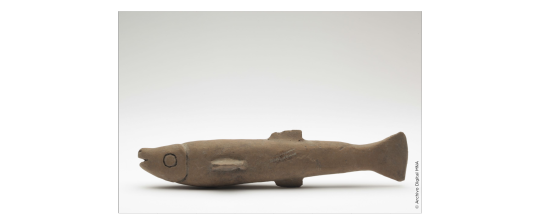
Cultura: Teotihuacana
Técnica: Modelado
Provenience unknown, possibly looted
MNA
#archaeology#arqueologia#art#arte#history#historia#mesoamerica#first nations#native american#occidente de mexico
34 notes
·
View notes
Text
Después de las declaraciones que están haciendo los países occidentales sobre como pobrecito Israel no está cometiendo un genocidio en Palestina, a la próxima que vea a los países colonizadores, asesinos y racistas declarar que son re avanzados socialmente porque hacen películas remakes de disney donde un personaje blanco ahora es latino, gay y paralítico le pego un tiro en la frente ta?
#son todos una manga de fascistas colonizadores disfrazandose de progresistas#anyways muerte al imperio occidental y todo eso#se cagan en todo el tercer mundo es impresionante ya les va a llegar la hora mucho mas pronto de lo que se esperan y se van a arrepentir
14 notes
·
View notes